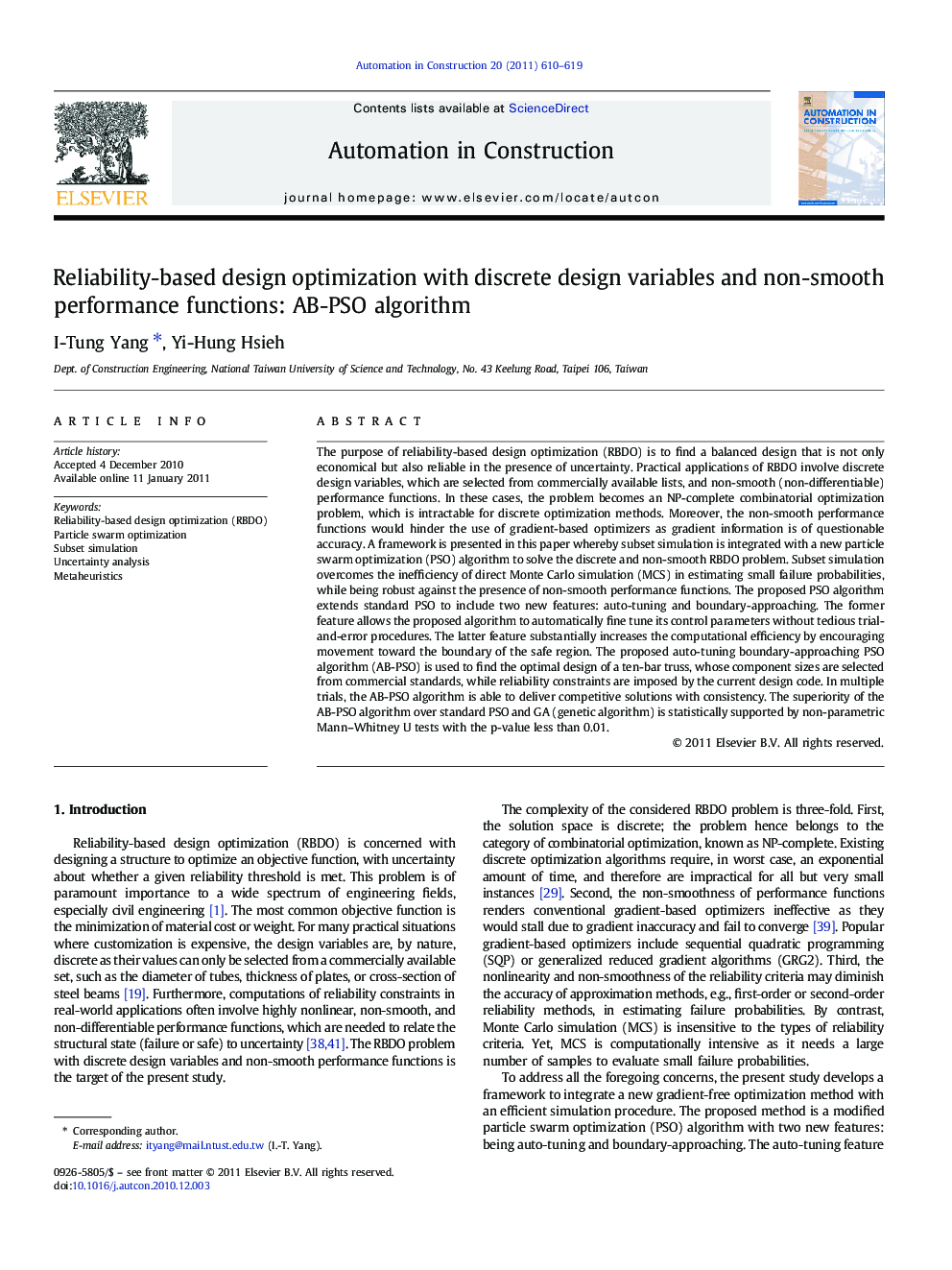| Article ID | Journal | Published Year | Pages | File Type |
|---|---|---|---|---|
| 247136 | Automation in Construction | 2011 | 10 Pages |
The purpose of reliability-based design optimization (RBDO) is to find a balanced design that is not only economical but also reliable in the presence of uncertainty. Practical applications of RBDO involve discrete design variables, which are selected from commercially available lists, and non-smooth (non-differentiable) performance functions. In these cases, the problem becomes an NP-complete combinatorial optimization problem, which is intractable for discrete optimization methods. Moreover, the non-smooth performance functions would hinder the use of gradient-based optimizers as gradient information is of questionable accuracy. A framework is presented in this paper whereby subset simulation is integrated with a new particle swarm optimization (PSO) algorithm to solve the discrete and non-smooth RBDO problem. Subset simulation overcomes the inefficiency of direct Monte Carlo simulation (MCS) in estimating small failure probabilities, while being robust against the presence of non-smooth performance functions. The proposed PSO algorithm extends standard PSO to include two new features: auto-tuning and boundary-approaching. The former feature allows the proposed algorithm to automatically fine tune its control parameters without tedious trial-and-error procedures. The latter feature substantially increases the computational efficiency by encouraging movement toward the boundary of the safe region. The proposed auto-tuning boundary-approaching PSO algorithm (AB-PSO) is used to find the optimal design of a ten-bar truss, whose component sizes are selected from commercial standards, while reliability constraints are imposed by the current design code. In multiple trials, the AB-PSO algorithm is able to deliver competitive solutions with consistency. The superiority of the AB-PSO algorithm over standard PSO and GA (genetic algorithm) is statistically supported by non-parametric Mann–Whitney U tests with the p-value less than 0.01.
Research highlights► The proposed framework can handle discrete design variables in RBDO. ► Non-smooth performance functions hinder gradient-based optimizers. ► The feature of boundary-approach can expedite the optimization process. ► The feature of auto-tuning avoids tedious trial-and-error adjustments. ► The proposed algorithm is statistically shown to be superior to GA and standard PSO.
